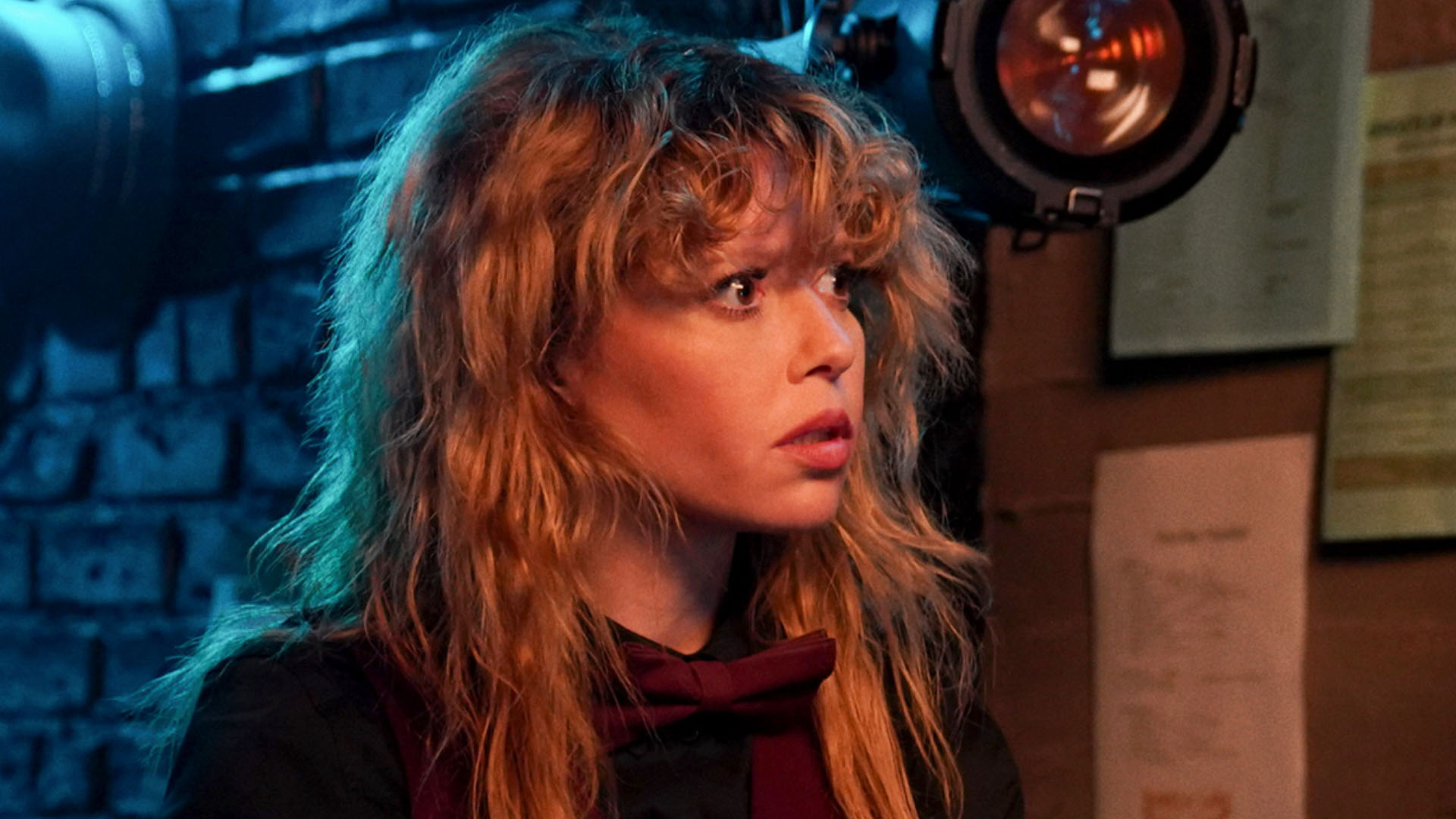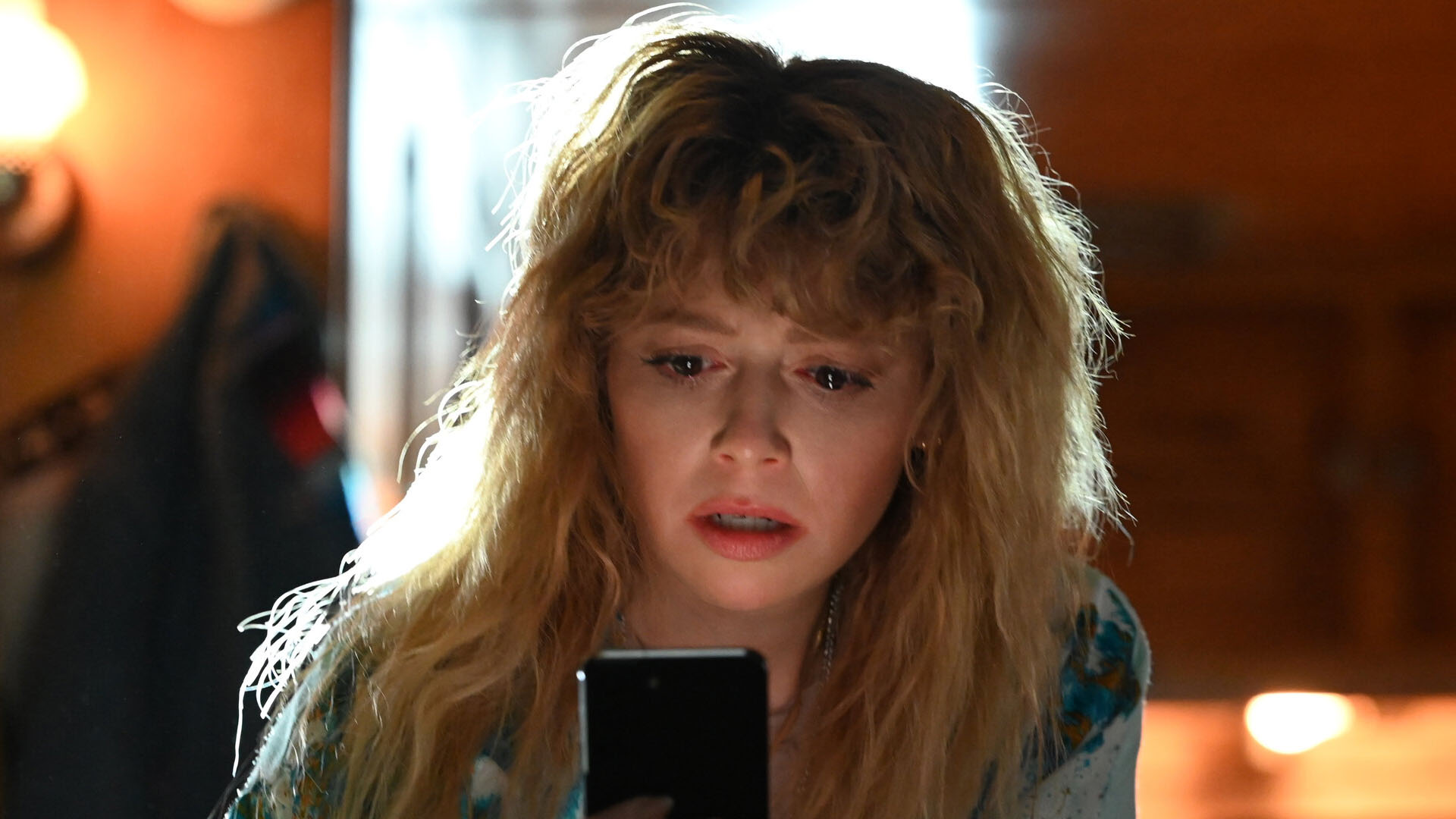Poker Face is flush with Rian Johnson’s affection for 1970s whodunnits

Natasha Lyonne leads new mystery series Poker Face, from director Rian Johnson (Knives Out, Glass Onion). Dominic Corry thrills to the balancing act of both 70s influences and contemporary realities.
Like Peter Jackson and Guillermo del Toro, Rian Johnson is one of those filmmakers where you can sense how much of a true enthusiast they are in everything they do. With his last two movies, Knives Out and Glass Onion, he displayed extreme affection for 1970s whodunnits, a sub-genre I share a love for.
So it was very exciting when he announced last year that he was creating a case-of-the-week TV show. But just as he subverted whodunnit tropes with the two above-mentioned movies, Johnson is swerving expectations with the series in question, Poker Face. In a good way.
Poker Face stars Natasha Lyonne as Charlie Cale, who has the uncanny ability to tell when anyone is (intentionally) lying. It’s less useful than you’d think, as she explains in the first episode (which is all I’ve seen), as most people are lying all the time.
But her skills come in particularly handy during poker games, which got her into some trouble, which is why she now works as a cocktail waitress in a casino. When a co-worker is murdered and the police think the victim’s abusive husband is responsible, Charlie smells a rat and starts sniffing around.
I foolishly presumed that Poker Face would be a weekly whodunnit, but if the pilot is anything to go by, the format here takes inspiration from the legendary Columbo telemovies by showing the viewer the murder as it happens, so there’s no mystery really at all. The joy of the show is watching Charlie piece together what occurred by applying her special set of skills. And it is a joy.
Johnson, who wrote and directed episode one, betrays his Columbo reverence early on by utilising that show’s unmistakable yellow font for Poker Face‘s onscreen credits. By removing the mystery element, the emphasis, as in Columbo, is placed on the characters and the performances, which are very solid in both shows.
But there are other discernable influences, too.
As she says multiple times in the opening episode, Charlie isn’t a cop. The murder victim is a friend, hence her interest in the case. This brings to mind one of the great case-of-the-week shows of all time, Murder, She Wrote, in which the main character (played by the late, great Angela Lansbury, who memorably camoed in Glass Onion alongside Lyonne) just happened to be around when people got murdered, and stuck her beak in, usually in the interest of clearing a falsely-accused friend, or more likely, her doofus nephew Grady.

It’s not even definite yet that there will be a murder every week in Poker Face, but we do know that Charlie’s involvement in whatever “case” there may be is a result of it occurring within her existing purview. Although perhaps we shouldn’t rule out the notion that the authorities (who are less than useless in episode one) might start calling upon her to apply her skills as some kind of consultant.
But, setting aside how that is something a much more conventional show might pursue, that last scenario seems unlikely given the degree to which the status quo is upended by the end of episode one. “Justice” does not necessarily equal “jail” in the world of Poker Face, which appears to be a much more serialised show than the term “case-of-the-week” might denote, another instance of Johnson playing with expectations. And I’m here for it.
Lyonne, with her troubled past, relatively recent resurgence and a voice that gives new meaning to the word “throaty”, is a perfect lead. Her onscreen presence projects complex layers that many actors never begin to approach. We learn some details about Charlie’s backstory throughout the first hour, but her essential nature remains somewhat enigmatic, so I’m looking forward to getting to explore it some more. Also she says “bullshit” a lot (it’s usually how she identifies a lie), and she sounds great doing it.

As Glass Onion showed, to polarising effect, Johnson is one of the few mainstream filmmakers excited to engage in the contemporary realities of social media. That comes through in Poker Face as well, with Charlie replying to crazy tweets—I hope they keep this up.
The first episode has high production values, and I was intrigued by Johnson’s apparent desire to swim in murkier waters than most “case-of-the-week” shows. Once again, I’m not sure what future episodes may hold, but I hope the show continues to take place in less formal legal settings.
Johnson’s stature in the industry also means a heavyweight lineup of guest stars, which in episode one includes Adrian Brody (the star of one of Johnson’s more overlooked films, 2008’s The Brothers Bloom) and Benjamin Bratt, who are both great. The trailer promises future appearances from greats such as Chloë Sevigny, Ron Perlman, Nick Nolte, Ellen Barkin, Luis Guzman, Judith Light and, the star of Johnson’s first movie Brick, Joseph Gordon-Levitt.
I had to adjust my whodunnit expectations a little once I realised what Poker Face was doing, but I had a ball watching it nonetheless.

















